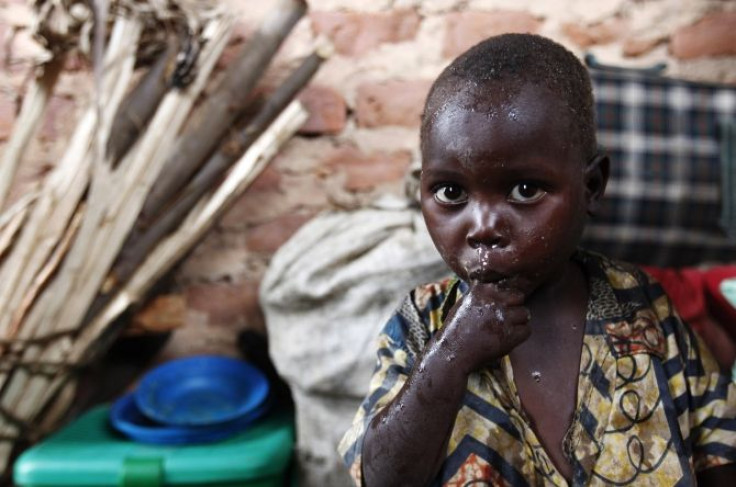Children Affected by War, New Psychological Intervention Program Shows Promise

New psychological intervention program aimed at helping children in war-torn Democratic Republic of Congo reduced trauma of war crimes like rape and abuse by half.
Rape is one of the most common ways that army uses to weaken the community, according to experts. Most women choose to remain silent about rape because of the stigma attached to it.
"In war-affected areas, victims will often not seek, or receive help of any kind. This is because wives fear that their husbands will reject them, and girls fear that they will be unable to marry if it is known that they have been violated. Stigma is also compounded by the fact that many of these rapes are carried out by undisciplined militias operating in remote and inaccessible parts of the country and the nearest hospital or clinic is many miles away,” said Paul O’Callaghan, from Queen’s School of Psychology.
"It is not surprising that studies show sexual abuse to have a profoundly detrimental effect on the mental health of girls in war-affected countries, but what is surprising was just how successful the intervention was in reducing psychological distress," he said.
The intervention program was aimed at helping children in war and sexual abuse in Democratic Republic of Congo. After 15 sessions, the researchers found a reduction of 72 per cent in trauma symptoms in female victims of rape and sexual abuse. Also, dramatic reductions were seen in feelings of depression (82 percent) and anti-social behavior (64 percent) was seen.
"This is the first time that such a therapy has been used in this way. Although Trauma-Focused Cognitive Behavior Therapy has the greatest evidence for its effectiveness in treating child victims of sexual violence in the West, to date no study has ever adapted it for use in developing countries affected by the twin evils of war and sexual violence," O’Callaghan said.
The research team along with Congolese counselors encouraged girls to draw out pictures of their most traumatic events. The sessions also included relaxation techniques, mental imagery techniques and tips to cope with bad memories.
"The dramatic reduction in trauma, depression and anxiety, conduct problems and anti-social behavior shows that this kind of therapy is very effective in treating war-affected children who have been exposed to rape and sexual violence. In addition to the statistical results of the therapy many of the girls attested to how the intervention helped reduced their terrible nightmares, disturbing flashbacks and suicidal thinking. For me, that was the most rewarding part of our work in the DRC," O’Callaghan said.
The research team also helped 50 boys reduce stress and anti-social behavior by psychological intervention program.
Researchers from Queen’s University Belfast and an NGO World Vision were behind this intervention method.



























